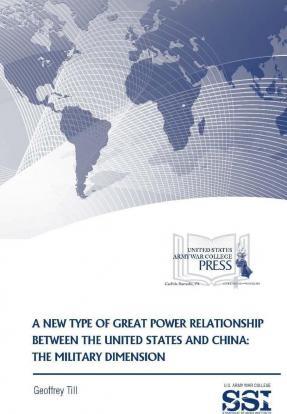01 January 2014
- RSIS
- Publication
- External Publications
- A New Type of Great Power Relationship between the United States and China: The Military Dimension.


The relative economic and military rise of China is likely to lead a major shift in the world’s strategic architecture. The form that China’s new role takes will have a decisive impact on the interests of the United States and its allies and partners in the region. For the outcome to be generally beneficial, China needs to be dissuaded from hegemonic aspirations and retained as a cooperative partner in the world system. President Xi Jinping’s recent suggestion that a newly empowered China and the United States adopt a relationship that is new and different from previous relations between the great powers provides an ideal opportunity for the United States to consider its strategic options in the region. Given the importance of the issues at stake, and the difficulty of the task, all of the levers of American power, both “hard” and “soft” will need to be brought into play. Since the Asia-Pacific Region is primarily a maritime theater, a leading role wi1ll need to be played by the U.S. Navy, Marines, and Air Force. The U.S. Army will have a substantial supporting and facilitating role in shaping the new relationship with an emergent China.
The relative economic and military rise of China is likely to lead a major shift in the world’s strategic architecture. The form that China’s new role takes will have a decisive impact on the interests of the United States and its allies and partners in the region. For the outcome to be generally beneficial, China needs to be dissuaded from hegemonic aspirations and retained as a cooperative partner in the world system. President Xi Jinping’s recent suggestion that a newly empowered China and the United States adopt a relationship that is new and different from previous relations between the great powers provides an ideal opportunity for the United States to consider its strategic options in the region. Given the importance of the issues at stake, and the difficulty of the task, all of the levers of American power, both “hard” and “soft” will need to be brought into play. Since the Asia-Pacific Region is primarily a maritime theater, a leading role wi1ll need to be played by the U.S. Navy, Marines, and Air Force. The U.S. Army will have a substantial supporting and facilitating role in shaping the new relationship with an emergent China.



